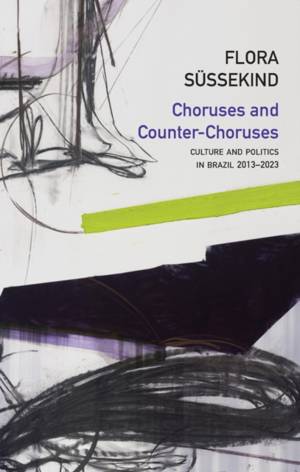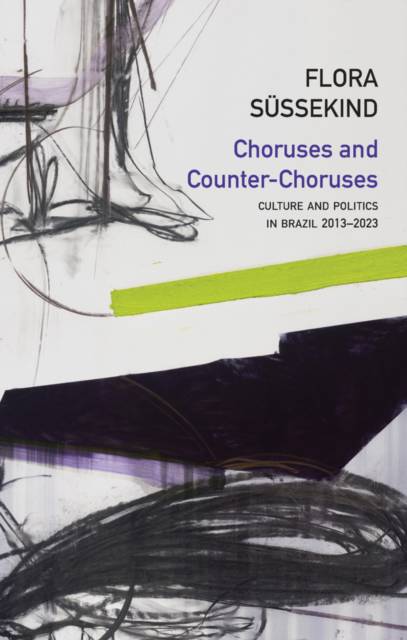
- Afhalen na 1 uur in een winkel met voorraad
- Gratis thuislevering in België vanaf € 30
- Ruim aanbod met 7 miljoen producten
- Afhalen na 1 uur in een winkel met voorraad
- Gratis thuislevering in België vanaf € 30
- Ruim aanbod met 7 miljoen producten
Zoeken
€ 25,95
+ 51 punten
Uitvoering
Omschrijving
In this book, the leading Brazilian cultural theorist Flora Süssekind analyses the turbulent recent history of Brazil. She examines the protests which erupted in Brazil in 2013 and the ways that these were appropriated by the extreme right, and she shows how these developments expressed a break from and threat to the democratic orientation and social pact represented by the 1988 constitution, a collective achievement after decades of dictatorship. She also shows how these events contributed and pointed to the rise of a culture of intolerance, bringing this to bear upon literary and artistic production.
Süssekind's original concept of the chorus, understood not simply as a musical or theatrical category but as a structural force in culture, enables her to highlight the critical potential of cultural production and its power to redirect the course of events. She argues that it was during Brazil's recent history that the choral inflection emerged as a structuring force in culture. By documenting the dramatic shift in literary and artistic production from 2013 to the present day, Süssekind presents a sophisticated cartography for understanding literary and artistic production within a culture of dissent.
This innovative book will be of value to anyone interested in Latin American studies, literary and cultural studies and the history and politics of Brazil.
Süssekind's original concept of the chorus, understood not simply as a musical or theatrical category but as a structural force in culture, enables her to highlight the critical potential of cultural production and its power to redirect the course of events. She argues that it was during Brazil's recent history that the choral inflection emerged as a structuring force in culture. By documenting the dramatic shift in literary and artistic production from 2013 to the present day, Süssekind presents a sophisticated cartography for understanding literary and artistic production within a culture of dissent.
This innovative book will be of value to anyone interested in Latin American studies, literary and cultural studies and the history and politics of Brazil.
Specificaties
Betrokkenen
- Auteur(s):
- Vertaler(s):
- Uitgeverij:
Inhoud
- Aantal bladzijden:
- 160
- Taal:
- Engels
- Reeks:
Eigenschappen
- Productcode (EAN):
- 9781509568192
- Verschijningsdatum:
- 17/02/2026
- Uitvoering:
- Paperback
- Formaat:
- Trade paperback (VS)

Alleen bij Standaard Boekhandel
+ 51 punten op je klantenkaart van Standaard Boekhandel
Beoordelingen
We publiceren alleen reviews die voldoen aan de voorwaarden voor reviews. Bekijk onze voorwaarden voor reviews.







